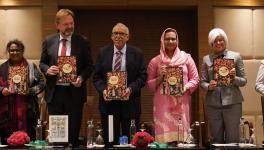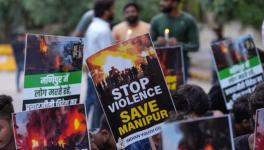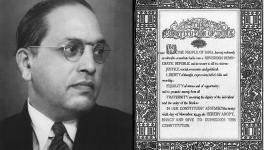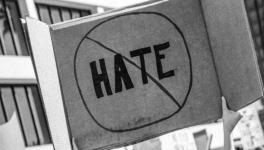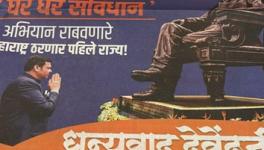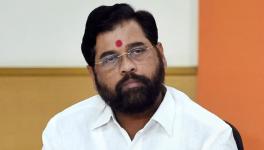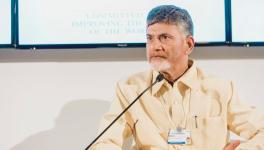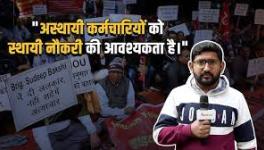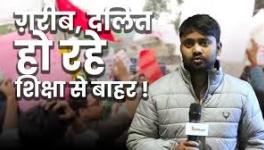Freedom From Liberation, Salvation From Restraint
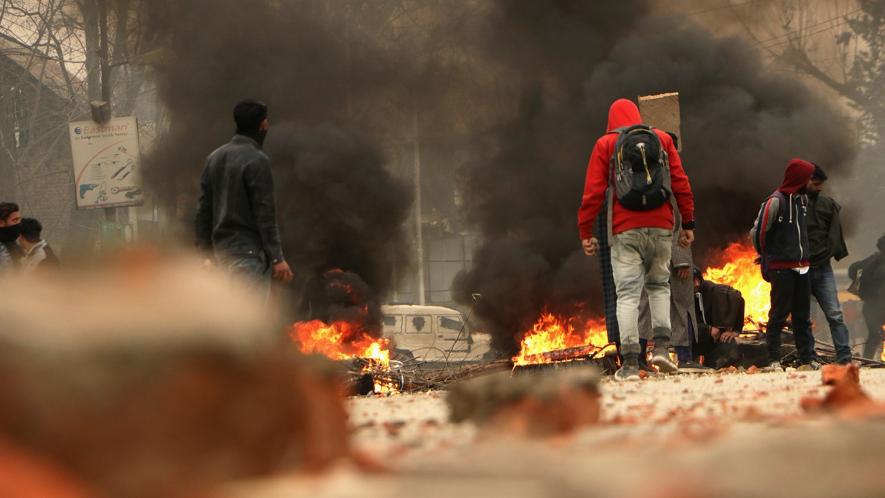
It need not be stated that a certain kind of narrative is ingrained into the abrogation of the special status of Jammu and Kashmir just days before the festival of Eid and shortly before the 72nd anniversary of India’s independence. The symbolism of silence is more potent in times like this than words or actions. Nevertheless, the optics of India celebrating Independence while Kashmir is pushed into a darkness of no return is a contrast that needs admitting. We will celebrate while they mourn. We are victorious, while they are caged.
Add to this the speech delivered by Prime Minister Narendra Modi right after Article 370 of the Constitution was made meaningless. He made it a point to repeatedly convey his best wishes for Eid to Kashmiris. Even as his government had imposed a complete clampdown on Kashmir, he stated that Kashmir has been liberated from Article 370. There is little doubt that this logic is resonating well with Indians. This is an Independence day gift that marks the country’s trade-off between freedom, fear and hubris.
Hubris and fear are cohabiting dangerously in India. Public conversations have come to a screeching halt. Even those who support the incumbent regime are afraid to express dissent or even a minor disagreement. As one sinks into fear, one celebrates the actions of the regime as a victor would; because someone else is being vanquished.
There is a kind of capillary action in how fear and consent are multiplying: Fear has reached its limit-experience. Every possible presence, however benign, of the “Other” [Muslims] causes repulsion. Even the silence of the Other feels like it is mocking you. Every sense of solidarity expressed by the Other leaves one feeling slighted. It seems as if only a genocidal capture will quench the self-imposed fear. Fear is taking a sexually charged form in the subconscious. It has parked itself at the wrong place in the subconscious, where it is seeking more and more intensity. The fragility of human sensibilities has been exposed: People are celebrating submission as independence from a ‘historical injury’.
The complexities of modernity have been exchanged for a reassuring simple-mindedness. The limits of moral dilemmas are being traded off for a sense of empowerment that is in black or white. Lofty imaginations are being buried in order to sow banality in the everyday. Repetitiveness, monotony and the anomie of modern life are sought to be overcome with the intensity of evil and there is a gamble with violence. Risk, a commodity created by the market, is being retrieved and wrenched into private, personal and intimate zones.
Thus, we are witnessing the creation of a new normal. Without the masculinity of risk, there is only the materiality of worthlessness that stares back at us. There is no aesthetics worth struggling for.
Every available moral precept has been colonised: Criminalising triple talaq has substituted rights and justice, colonising Kashmir amounts to liberation, lynching stands where dignity and self worth should have been, visceral nationalism has colonised love and metaphysical compassion. Majoritarianism exists where self reliance and self respect would once have stood and the destruction of institutions is our way to decry the elitism and inequality that we loudly rejected. Corporatisation is the new efficiency and fear the new weapon of national security. Public morality has been completely encircled; to empty it out from within and reinforce it from without.
The day the prime minster bowed before the Constitution, I knew that we are all set for a major constitutional overhaul. The moment he bowed before the steps of the Parliament, one could predict that poaching and horse-trading would be mainstreamed. The moment he repeats “sabka vishwas” (everyone’s faith), it means breaking the last ounce of mutual trust in society. The day he utters “saaf neeyat” (good intentions) it can only mean machinations behind the scenes that will criminalise the intention of all others.
One is left in a state of suspended disbelief as to what comes next. Before one can make complete sense of an event, we are bombarded with yet another episodic moment. This soap opera of governance has mediatised social life. In it, we are both the actors and the spectators. We are visualising our lives through the experiences of others. Inner selves have been externalised while aggressive externality has been internalised. There is not a moment to pause because we are scared what it would reveal about us. We have been collectively liberated from the guilt of holding darker recesses within ourselves. We no longer have to live schizophrenic lives of forced civility and burdensome dialogue.
This Independence day indeed brings a liberation of another kind. Can we expect, anytime soon, liberation from liberation? What will restore the silent dignity that can be found in freedom? How will we realise that empathy is a necessary antidote to our own loneliness? Where will we find the collective resources that allow us to believe that trust is an intense experience that necessarily remains unstated?
Today, we are at a political dead end. The scholar Achille Mbembe argues that postcolonial democracies have moved from bio-politics to “necropolitics”. That is, to kill and fantasise about death represents our “shared vulnerability”. There is no easy way out of here. Death has come to be the only reality that can connect us to ourselves. Unless we connect to our own selves we cannot express solidarity with a collective, since all collectives are abstract; a construct in our minds. The corporeal body is the only reality we have before us. Therefore, today, our politics is more about death than life.
India has moved into a dark alley. When lights are lit up to celebrate Independence day, we are blinded by their brightness. The lights cast us into darkness in broad daylight. We are experiencing the collective death of an identity as we knew it. Yet, how do we realise this truth staring at us in an age that is delusional and wishes away reality as something too cumbersome while fantasy has become too accessible.
Fantasy is the new equalizer and a potent tranquilizer. The Constitution is a dead document, no longer a live history that we collectively built. Merely reiterating the sanctity of this document is not going to help us revive a soul that is flickering. We need a new human story that can give us the courage to push ourselves into a collective reflection on what we are entering. As we turn the pages of history we await a shared journey with those who abandoned it—a journey of Independence, dignity, confidence, freedom, and Eid. A journey that disembarks hubris and finds independence in the banter of Kashmiri women. Will the search for intensity have another story to tell in different registers of voices spoken and heard?
Ajay Gudavarthy is associate professor, Centre for Political Studies, JNU. His forthcoming edited volume is titled Secular Sectarianism: Limits of Subaltern Politics, being published by Sage in 2019.
Get the latest reports & analysis with people's perspective on Protests, movements & deep analytical videos, discussions of the current affairs in your Telegram app. Subscribe to NewsClick's Telegram channel & get Real-Time updates on stories, as they get published on our website.









